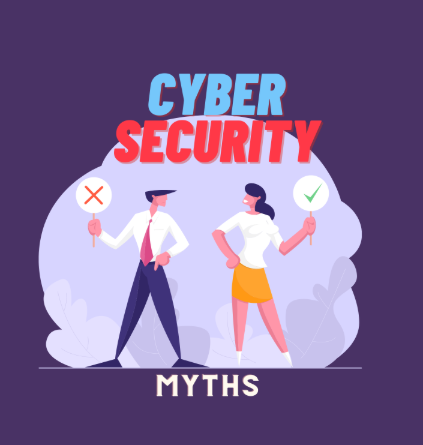As a business owner, understanding the basics of data security is crucial to safeguarding your company’s sensitive information. However, there are several misconceptions about data protection that could put your business at risk. In this blog, we’ll clear up nine common data security myths and explain why they’re simply not true.
Myth 1: All Data is Secure if It’s Encrypted
Encryption is an important security measure, but it isn’t infallible. While it adds a layer of protection, encryption algorithms can be cracked, leaving the data vulnerable. Additionally, encryption doesn’t guard against insider threats or human error. It’s just one piece of the larger security puzzle.
Myth 2: Anti-Virus Software Protects Against All Threats
Although anti-virus software helps prevent malware infections, it’s not a catch-all solution. Cybercriminals can still infiltrate your system through other means like social engineering or physical access. For example, an employee could accidentally leave a device unlocked, providing hackers with an easy point of entry.
Myth 3: All Cloud Storage Providers Offer the Same Level of Security
Not all cloud storage services are equal. While some providers offer strong encryption and additional security features, others might fall short in protecting your data. It’s essential to research and select a cloud provider that prioritizes security to ensure your data is adequately protected.
Myth 4: Every Firewall Provides the Same Level of Protection
Firewalls are a critical defense tool, but they come in various forms with different levels of security. A standard firewall may not offer the same protection as a more advanced, enterprise-grade solution. It’s essential to choose a firewall that suits the specific needs of your network.
Myth 5: Turning Off Security Protocols Will Speed Up Your System
Disabling security features might provide a temporary boost in speed, but it significantly increases your vulnerability to attacks. Security protocols are in place to protect your system, and turning them off compromises your defenses.
Myth 6: Social Media is Secure Enough for Sharing Sensitive Information
Social media platforms are not secure enough for sharing confidential or sensitive data. Hackers frequently target these platforms because of their large user bases and weak security measures. It’s best to avoid sharing sensitive information on social media to prevent it from falling into the wrong hands.
Myth 7: Mobile Devices Don’t Need to Be Secured
Mobile devices are just as susceptible to cyber threats as computers and other devices. Without a proper security strategy in place, your smartphones and tablets can be easily compromised. Always ensure your devices are updated and protected with passwords or biometric locks to prevent unauthorized access.
Myth 8: Deleting Data Means It’s Gone Forever
When you delete data, it’s not necessarily gone for good. With the right tools, deleted data can be recovered. To securely erase sensitive information, you should use data-wiping software or hire a professional service to destroy the data completely, especially before discarding devices.
Myth 9: Your Passwords Don’t Need to Be Strong
Weak passwords are one of the easiest ways for cybercriminals to access your accounts. Strong, unique passwords are essential for protecting your information. Change them regularly and avoid reusing passwords across different platforms to minimize your risk.
Conclusion
These data security myths can lead to false sense of security and make your business vulnerable to cyber threats. It’s important to stay informed and implement best practices for data protection. Invest in reliable security measures, keep your systems up-to-date, and educate your team to minimize risks and protect your company’s sensitive information.


